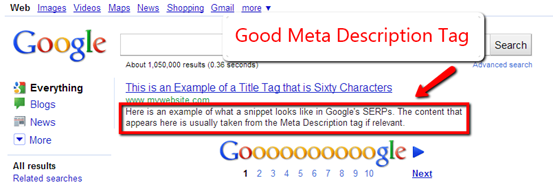5 SEO Hacks to Drive Traffic to Your Clinic’s Site

SEO HACKS TO DRIVE TRAFFIC TO YOUR CLINIC’S SITE
Search engine optimization is crucial to the success of your website and, therefore, your clinic. The way patients find a doctor today has completely changed from 15 years ago. The majority of patients start their search for a doctor online. In fact, a reported 86 percent of patients conduct an online search before booking an appointment.
The simple truth is this: Your clinic’s online presence matters. You’re missing out if you’re not taking the steps to ensure your site has the best chance of being seen. SEO will get eyes on your site and patients into your clinic. The following SEO hacks will help you do just that. Full disclosure, these “hacks” are simply efficient ways to implement SEO and are in no way gray- or black-hat techniques.
Harness the Power of Video
If you had to guess the second-largest search engine in the world, what would your answer be? Bing? Yahoo? You’d be close, but wrong. YouTube receives over 3 billion searches per month. You should definitely be leveraging the platform to drive traffic to your site.

A clinic YouTube channel is a great way to supplement your site’s original content while also adding value to the user experience. The useful information you can give to potential patients is nearly unlimited. Not only will you deliver great informative content, you’ll have the chance to have your videos indexed on YouTube and within Google search results, which will drive traffic from two huge sources.
Combine JavaScript Tags
Various sites, like Google Analytics, Google+, and Twitter, request to install JavaScript code onto your site to power certain processes. While some of these functions have their usefulness, each one that you install pulls down your site speed. Slower speeds are horrible for SEO and cause your site to take hits with the search engine algorithms.
You can prevent loading time issues by using the free Tag Manager tool from Google. Instead of having your site deploy each snippet of code by itself, enter the code snippets into the tag generator. The tool will give you a uniform, site-wide tag that will deploy the individual JavaScript snippets. Your load times will drastically decrease compared to when your site had to fire each snippet off individually.
Utilize Social Media to Stay Ahead of the Curve
Be sure to monitor social media platforms and forums specific to the medical field. If you see a topic of discussion that constantly seems to be trending, incorporate this conversation topic in your site’s content and blog. This is an excellent way to do keyword research.

Picking up on these conversational trends will boost your site in multiple ways. Being out front of a hot topic or question will help you rank for that particular phrase. By having answers to questions that everyone is asking, you’ll also take steps towards becoming an authority in your field. By keeping your ear out for trending conversations on social platforms, you’ll be well in front your competitors in ranking, in site traffic, and as a thought leader in your field.
Get Rid of the Huge Pictures
Your high-resolution images may be hindering your SEO efforts. Large pictures can drastically slow your page’s loading speed. This not only puts a big dent in your search rankings but also tanks the user experience. No one wants to sit and wait forever for your site to load.
You’ll want to be sure your images are solid in quality, have the correct aspect ratio, have decent resolution, and are the right size to be compatible with various devices. If you’re having trouble spotting large image files that are slowing your load time, use a tool like https://tools.pingdom.com. It will check the files sizes of all the elements on your site and identify any that are unnecessarily large.
Don’t Neglect Your Meta Description
Many digital marketers seem indifferent to their meta descriptions. Since they think the meta description isn’t factored into Google’s algorithm, they haphazardly throw in some characters and move on. Don’t make this mistake for your clinic’s website.

It’s true, Google does not take meta descriptions into account for ranking purposes, but they’re still extremely important. This is the space you get to include your call to action and entice clicks with powerful language, which does affect your rankings. Take the opportunity to write a persuasive, creative description and watch the clicks roll in.
If you thought SEO was just for e-commerce sites, you’ve been missing the mark. Your potential patients are out there, turning to the web in droves to decide which clinic to visit. Take full advantage of the opportunity to optimize your site so that you’ll be there at the top of the results page when they’re ready to click.




